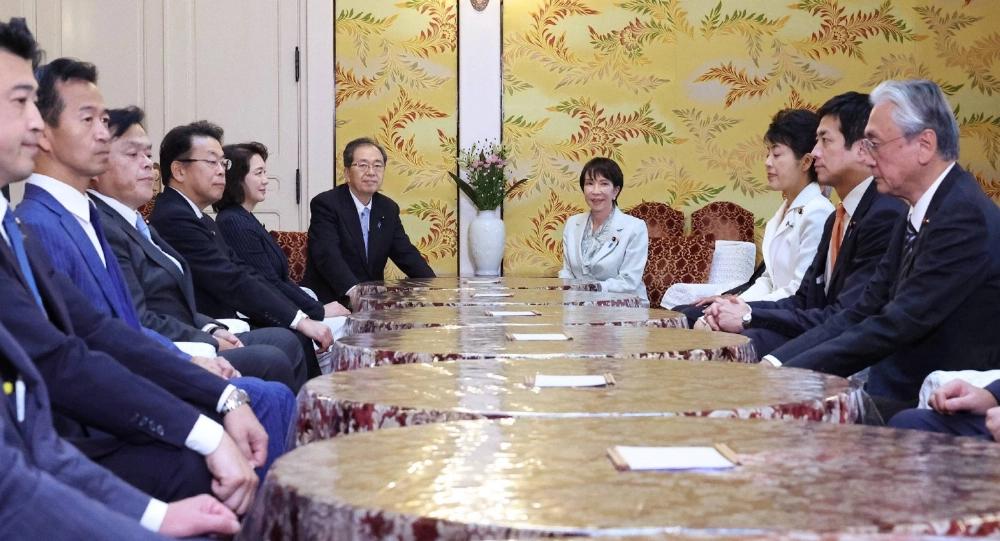In a surprising development, newly elected Liberal Democratic Party president Sanae Takaichi faces the possibility of not being elected the next prime minister when parliament convenes later this month, as Komeito hinted it may not vote for her, and the largest opposition party suggested it would support the head of another opposition force, the Democratic Party for the People.
The LDP’s choice of Takaichi, a hard-line hawkish conservative, in the Oct. 4 election created surprise and concern within Komeito, the LDP’s junior coalition partner. The traditionally more pacifist party’s membership has expressed a number of worries over Takaichi’s hawkish views, how she views Japan’s wartime past and policies that could greatly exclude foreign nationals.
Komeito leader Tetsuo Saito met with Takaichi Tuesday and said that while there was common understanding on those two issues, the two sides were still at odds over money in politics, especially after Takaichi appointed Koichi Hagiuda as the powerful executive acting secretary-general.


















With your current subscription plan you can comment on stories. However, before writing your first comment, please create a display name in the Profile section of your subscriber account page.